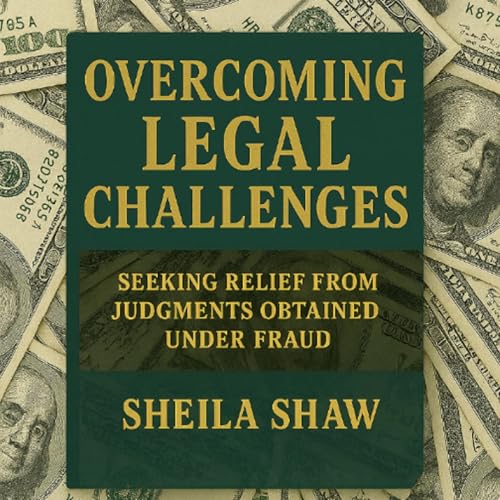
FAMILY INTEGRITY (Brady List isn’t just some obscure database—with credibility issues)
Failed to add items
Add to basket failed.
Add to Wish List failed.
Remove from Wish List failed.
Follow podcast failed
Unfollow podcast failed
-
Narrated by:
-
By:
About this listen
Challenging Misconduct in Dependency Court: Legal Strategies & Constitutional Rights This podcast Q&A explores dependency court misconduct, including the use of unverified hearsay and omission of evidence. It discusses how such actions violate due process under Mathews v. Eldridge and parental rights affirmed in Troxel v. Granville, outlines remedies like 42 U.S.C. § 1983 lawsuits, the Brady List for reporting misconduct, and civil claims for aiding and abetting domestic violence, offering strategic guidance for legal advocates. podcast link: https://cdn.notegpt.io/notegpt/web3in1/podcast/podcast_93813200-7a1a-4fb6-ba2f-8c57ad0a3a73-1762515187.mp3 1. The Risks of Unverified Hearsay and Omitted Evidence 1.1. ... someone’s testimony gets used in future cases. For families facing bad actors in dependency court, it’s another route to push for consequences. 5.2. Host: That opens up a whole layer of accountability. But what about when court actors or agencies actually help cover up domestic violence—are there civil suit options for that? 6. Civil Lawsuits: Aiding and Abetting Domestic Violence 6.1. Guest: If court actors or agencies turn a blind eye to domestic violence—or worse, help hide it by ignoring police reports—they could be held liable under civil law. Think negligence, conspiracy, or even aiding and abetting under state statutes. It’s about saying, 'If you enable harm by ignoring or suppressing evidence, you can be sued for it.' 6.2. Host: I’ve seen advocates get creative with these claims, but it sounds like preparation is everything. For those building a complaint, what’s the smartest strategy to actually get traction? 7. Strategic Advocacy: Building a Strong Complaint 7.1. Guest: One smart move is to anchor your arguments to those key cases—Mathews and Troxel—to show exactly how constitutional rights got trampled. Bring in the omitted police reports, highlight the reliance on hearsay, and don’t forget to name the specific statutes or sections, like 1983, that back your claims. 7.2. Host: And I guess attaching evidence—like labeled exhibits and clear references—makes everything harder to ignore, right? 7.3. Guest: Exactly. A complaint packed with documented examples, statutory references, and even Brady List entries doesn’t just tell the story—it makes it legally airtight. That’s how you shift cases from being dismissed to actually being heard. 7.4. Host: That’s such a powerful toolkit for anyone up against court misconduct. Thanks for breaking all of that down.



